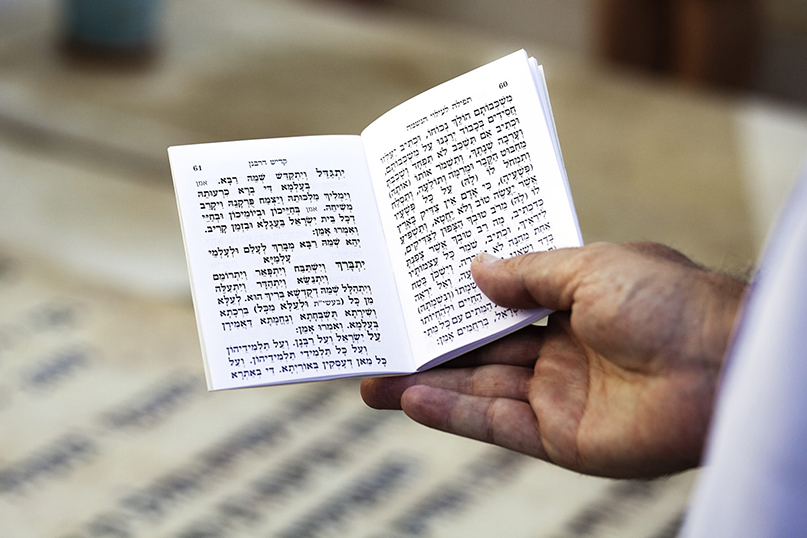
By Rabbi Seth Winberg
WALTHAM, Mass. (JTA) — Like so many others, I am feeling the spiritual loss and pain of our current inability to learn Torah and pray together in person. Many mourners are devoted to the customary recitation of Kaddish for a deceased close relative and struggling with how to do so in the absence of a minyan.
Some rabbis are encouraging internet-based solutions to hold us over until this crisis abates. I’m concerned that those solutions come with a significant cost. The decision to blur virtual reality with actual reality and relax the rules of minyan should not be taken lightly. Well-intentioned rabbis may think they are permitting something on a temporary basis, but the implications could be far-reaching. After we flatten the curve of this pandemic, I wonder if people will still appreciate that, in Rambam’s formulation, there is a spiritual value of “running to the synagogue.” Will it not seem more convenient to log in from home?
Alternatively, I suggest a different option for mourners that doesn’t obscure the uniqueness of Kaddish.
While most prayers are a dialogue between God and people, the Kaddish is a conversation between people. Talmudic sources note that the merit of Kaddish is for those who respond (Shabbat 119b and Berakhot 57a). All of this is missed when someone says the words alone.
Students often tell me that friendships and relationships are stronger when they aren’t conducted through screens and devices, and that they are seeking more personal ways of connecting with one another outside of the classroom. No device can replace the emotional energy of dozens of students singing together on Shabbat afternoon. And while fewer minyan attendees on campus need to say Kaddish than do at a synagogue, the responsibility to physically be at services to support a friend saying Kaddish is a powerful opportunity to shape one’s character.
Our ancestors created legitimate substitutions for Kaddish when a minyan wasn’t available by using biblical verses with words similar to Kaddish — and we would do well to avail ourselves of those solutions now. According to the 13th-century work Sefer Hasidim, “a person who lives in a village without a minyan or who arrived late to the communal prayer after they had already said ‘may God’s great name …’” can say a modified version of the traditional prayer privately at home.
A few American Orthodox synagogues, including the one I attend in this Boston suburb under the guidance of Rabbi Benjamin Samuels, learn Torah together online and then allow mourners to recite a medieval “Kaddish for an individual” poem (two versions available here in the original Hebrew and in translation).
This approach allows us to maintain the integrity of communal prayer and locate a solution within the tradition without stretching halacha (Jewish law) beyond its limits.
We have rushed to get our normal lives online — prayer services, lectures, music lessons, Torah learning and school. But we may be deluding ourselves by trying to live normal lives during a pandemic. Life right now is drastically different. We need to find ways to nurture strong interpersonal ties — and maintain our traditions — so that our communities will still be there when we are ready to go back to them.
Rabbi Seth Winberg is is executive director of Brandeis Hillel and the university’s senior chaplain and director of spiritual life. This is an excerpt of an article he wrote on the subject. The views expressed in this piece are his own.







 Southern New England Jewish Ledger
Southern New England Jewish Ledger














